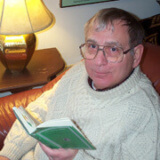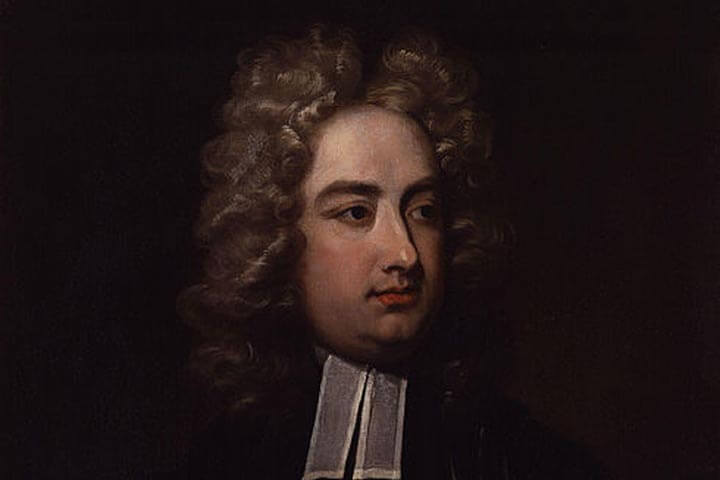James Rhodes, Teacher, and Scholar (February 24, 1940-January 23, 2015)

James Rhodes was a man of unfailing humor and boundless affection for others, especially his students, to whom he shared, over the years, his wonderment and respect for things that truly mattered, but were difficult to face or speak about. I was his Marquette colleague for almost 30 years, and as he did routinely for his students he helped me to care deeply and think clearly about such things, and to become a better teacher myself. And, if that wasn’t enough, he was for many years, a wise and faithful companion in such enduring pleasures as lap swimming, bike riding, music making, and early morning discussions of Shakespeare, Plato, Huxley, George Eliot, and others.
When Jim fell ill, in August of 2014, he had been working on a manuscript dealing with three of Plato’s late dialogues: Theaetetus, Sophist, and Statesman. As his condition worsened, he was unable to sit at the computer even for short periods. He had to put his work aside, and worried that he might not be able to complete it. I offered to help, and for two weeks we worked on a draft version of the final chapter. I sat at the desk in his study, inserting, trimming, or otherwise refining on the basis of suggestions that he would make from an appropriately recumbent position nearby. It was sheer pleasure in the worst of circumstances, yet additional exposure to the power and depth of his understanding, and, on this occasion, with Plato himself as both subject matter and a source of considerable consolation for Jim and for those of us around him.
In the work, which will carry the title Knowledge, Sophistry, and Scientific Politics, Jim joins the debate regarding the role of the stranger in Plato’s later dialogues, and the relation of those dialogues to his earlier teaching. He parts company with scholars (Sayre, Miller, and others) who argue that the stranger’s position, in both Sophist and more fully in Statesman, presents a mature, and more realistic vision of the best possible polity, and that Socrates himself endorses it at the end of Statesman. He argues, instead, that the stranger’s vision contradicts everything that Socrates stands for, and is, in fact, the dystopian political order in which he will stand accused as an enemy of the state, and be sentenced to death. It was his fondest hope to leave a complete and final statement of his position in the matter as something for his fellow Platonists to consider, and at a time in which he had little else to cheer him, he found the resolve and stamina to see it to a conclusion, and to send it off to the publisher.
A consummate scholar, Jim was, if anything, an even a more remarkable teacher, one who had a profound, formative, and lasting impact on his students. He was a well read and widely ranging political philosopher, capable of doing justice to any of the thinkers he might include in a survey course, and of offering semester-long courses and seminars on any of them as well. But he was also a theorist who thought, taught, and wrote philosophically; he didn’t just describe what others thought or wrote, nor would he be content if his students merely learned to do this as well. He expected them to learn to think philosophically and to seek the true and the good in all matters.
He taught a variety of courses, covering thinkers of different eras and across the political spectrum (Plato, Aristotle, Augustine, Thomas Aquinas, Hobbes, Locke, Rousseau, Mill, Hegel, and Marx). But he was ultimately a Platonist for methodological and substantive reasons alike. He was a master of the art of Socratic teaching, and he believed, with Plato, that the earthly plane on which men and women live out their existence was a shadowy, even illusory version of ultimate reality, and that the Good and the Beautiful with which it was our destiny to one day be united, was ineffable, i.e., not something which either human reason or sense experience could access or capture. Indeed, he once told me that he believed that Plato was a pre-Christian mystic in whose path Augustine, Bernard of Clairvaux, Meister Eckhart, Teresa of Avila, and others would follow, and to whom, as did some of them, he also looked for guidance in forming and living out his Catholic faith.
For most of our years together, our offices were adjoining, and when he held office hours it was often hard for anyone to get by his door, given the number of people waiting to see him, and the time he spent with each of them. The nature of these interactions varied. For his better students, he would help them to reformulate and connect their many open-ended ideas and questions; for others he would patiently go over the comments he had attached to the draft essays they had submitted, that they might have a better sense of what they needed to do in the ensuing draft or drafts of an assignment whose final submission could be weeks and multiple versions away.
He once left a card on my desk with a rather intriguing inscription that read: “A true friend is a glimpse of God.” At the bottom of the card, he had written “I think your chances,” in this particular instance the likelihood that my academic life being spared, “are up to 20%.” He was a steely-eyed realist, not really a pessimist, but someone who didn’t want his friends, his colleagues, or his students to get their hopes up too high. As he saw it, one should blend high standards with modest expectations. Life, after all, was a mixed bag of high hopes, hard times, and, if lucky, occasionally enduring consolations, like philosophy, landing a decent-sized walleye, playing the zither, and being (mis)taken by native German-speakers for one of them.




